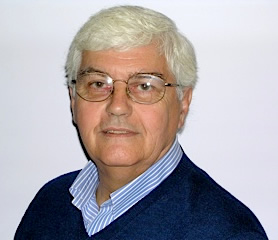
Richard Candee
Richard M. Candee is Professor Emeritus of American and New England Studies at Boston University, where he long served as Director of the Preservation Studies Program, and a joint MA/JD on Preservation and the Law. From 1969 to 1976 he was architectural historian at Old Sturbridge Village for a regional survey of New England textile mills.
He has served as a Trustee of the Society for the Preservation of New England Antiquities; Essex Institute, Peabody Essex Museum; Dublin Seminar for New England Folklife; Committee for a New England Bibliography; and a national officer of the Society for Industrial Archeology, Vernacular Architecture Forum, and Preservation Action.
He is the author of Atlantic Heights: A World War I Shipbuilder’s Community, and numerous articles and essays. Active in the preservation of Portsmouth, New Hampshire, architecture since the late 1960s, he co-organized Portsmouth Advocates in 1980 and organized the Vernacular Architecture Forum’s 1992 tour of the city for which Building Portsmouth: The Neighborhoods and Architecture of New Hampshire’s Oldest City was written. He has been awarded Lifetime Achievement Awards in Massachusetts and New Hampshire for his service to the field, and recognized by many organizations in Portsmouth, NH.
A senior fellowship at the Smithsonian’s National Museum of American History led to a 1999–2000 traveling exhibition on 19th century invention, a book on hand cranked knitting machinery and several journal articles. In 2002 he served as curator of an exhibition The Artful Life of Thomas P. Moses (1808–1881) at the Portsmouth Athenaeum. An officer or trustee of the Portsmouth Historical Society since 2004, he has curated or co-curated over a dozen exhibitions there and several others at the Portsmouth Athenaeum. In 2008 he organized two exhibitions, “Russell Cheney, Paintings of Northern New England 1910–1945” and “The Art of the Domestic: Kittery and Southern Maine” with a symposium on the artist and his contemporaries. He continues to compile a Russell Cheney catalog raisonné and welcomes additions to its more than 1,150 known works.


